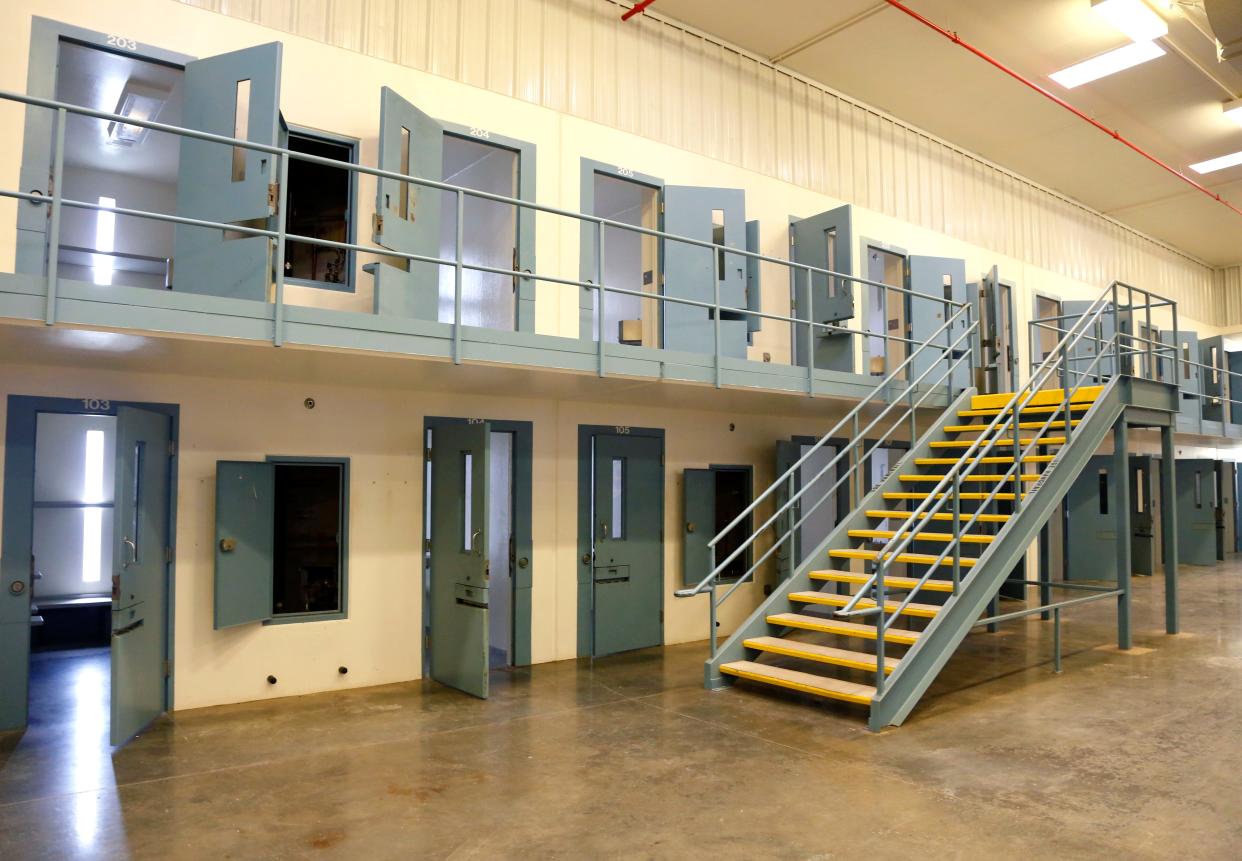Viewpoint: Why solitary confinement should be banned practice in Oklahoma prisons

Solitary confinement is an issue within our prison system with horrible effects that seem to be ignored. Oklahoma — among other states — still uses this practice in supermax prisons today. Supermax prisons or solitary confinement approaches a point where it violates the Eighth Amendment and ultimately needs to be taken out of practice.
A 12-foot by 6-foot cell is what prisoners are confined to for up to 22 to 23 hours a day . If you are not lucky to have a window, that can mean you do not see sunlight for up to days or weeks, or even years, for some. So, what do they do all day? They have restricted access, so they cannot attend any programs or classes, but they can have maybe a few books. They are provided three meals a day and social interaction with the guards. That is it. Inmates are not allowed to talk to prisoners in neighboring cells, so they sit in silence for most of the day because many cannot have radios. Often, most days, they are only allowed to leave their cells to shower or gym time, but only for an hour at most.

Supermax prisons are argued as better because they cost less and there is less violence. This is not the case; solitary confinement is almost twice the expense of holding prisoners, according to a review published by Research in Psychiatry in 2020. The violence rate is lower, though, right? Well, that is untrue, as well. Prisoners are alone for so long that there tends to be significantly more violence when they are let out around others than in a traditional prison style. The longer inmates stay in this condition, the more hostile they get.
We should be asking ourselves if the government is not saving any money, why are they still in use? To reduce reoffenders, maybe? However, that is not the case either; prisoners who have been subject to solitary confinement are more likely to reoffend . Without the rehabilitation programs or being able to take classes, inmates are not allowed to better themselves in the hope that they will not reoffend. The world wants a happier and safer place, but that may not be achieved if these practices are still being used.
Prisoners begin to be not only a prisoner of the state but also a prisoner of their minds. If inmates did not have mental health problems before, they are more than likely to have developed one while in solitary confinement, L. A. Rhodes wrote in the American Journal of Public Health. Prisoners have been seen to suffer from anxiety, post-traumatic stress symptoms, hallucinations, memory loss, psychosis and violent fantasies, to name a few. Inmates also are at high risk for suicidal thoughts and dying from suicide, J.F. Cockrell wrote in Law & Psychology Review. These inmates do not only suffer from mental illness but also physical illnesses such as dizziness, weight loss and severe headaches. While these are not all the negative impacts of being in prisons like this, what is listed is severe enough for a need for a change.
Further, even worse, juveniles can be put into solitary confinement in Oklahoma. They say, according to the 2020 Addendum to the Three Year Plan, that solitary confinement for juveniles is only in the use of severe circumstances. Still, the effects on adults are horrible; what can it do to the juvenile brain? The reoffending rates are so high for individuals put in these institutions. We need to be helping juveniles, teaching them, keeping them away from crime, and not locking them away with no sunlight or social interactions. If a parent puts their child under these conditions inside their home, DHS may be called, but because they are in prison, it is, OK? As residents, we need to speak up; these conditions are tough on adults, and no juvenile needs to experience something of this nature.
These conditions would not be considered suitable for people outside of prison. Many people may just ignore this issue because they think they are the most dangerous prisoners, but no. That, like most beliefs, is false; an inmate can be put into solitary confinement for misbehavior, according to Craig Haney, Department of Psychology with the University of California. This type of prison system is inhumaneespecially with juveniles who need intervention and support systems. With so many calls for change in the justice system lately, this one should be added to the list. The mental and physical effects cause a belief that it violates the Eighth Amendment and needs to be discussed more. It is cruel and unusual, and there needs to be a change.
Kealee Spencer is a student at Oklahoma State University.
This article originally appeared on Oklahoman: Viewpoint: Solitary confinement should be banned in Oklahoma prisons

